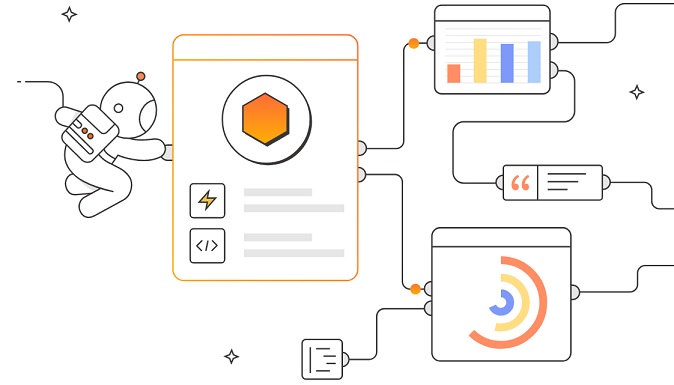GitLab announced the general availability of GitLab Duo with Amazon Q.
It's understood that APIs are essential building blocks of modern software. But are APIs products in their own right, ones that can produce revenue? Most API developers and professionals say yes, with 60% viewing their APIs as products, according to Postman's 2023 State of the API Report.

A product, according to Gartner, is simply a named collection of business capabilities that are valuable to a customer segment. And it makes sense that APIs are increasingly seen as products, serving both internal and external customers. But how does this view vary by industry and company size? And how much revenue can APIs generate?
It turns out that the larger the company, the likelier it is to view its APIs as products. At companies with over 5,000 developers, 68% of respondents said they considered their APIs products. At the other end of the spectrum were companies with fewer than 10 employees. There, just 49% of respondents viewed their APIs as products.
Significant Revenue
How much revenue can APIs create?
Quite a bit in some cases. When asked whether their APIs generate revenue, 65% of respondents in the survey said: yes. Of those answering in the affirmative, 43% said their APIs contribute more than a quarter of their total business revenue.
And almost 10% of companies with money-making APIs said their APIs generated more than three-fourths of total revenue. These companies were almost twice as likely to be in financial services as other sectors.
Companies that generate the greatest revenue from APIs take a different approach to software development, according to the report. They are much likelier to adopt an API-first approach.
API-first prioritizes APIs at the beginning of the development process, positioning APIs as the building blocks of software. API-first organizations develop APIs before writing other code, instead of treating APIs as afterthoughts.
API-First Leaders
For context, across all 40,000 survey respondents, 11% ranked themselves API-first leaders (scoring a 9 or 10 on a 10-point scale). But at companies whose APIs produced more than three-fourths of revenue, 28% of respondents ranked themselves API-first leaders — almost three times as many as in the general survey population.
What do these revenue stats mean for companies with APIs?
It suggests that investment into APIs is a sound strategy going into 2024. And in fact, organizations' investment of time and resources into APIs will rise or stay the same over the next 12 months, said 92% of respondents in the survey. That's up from 89% last year.
APIs' evolution from product intermediaries to products in their own right is a trend that bears watching. And for companies with APIs, it's worth weighing how much to invest in them, and even to an API-first approach. The decisions may have a tangible impact on the bottom line.
Industry News
Perforce Software and Liquibase announced a strategic partnership to enhance secure and compliant database change management for DevOps teams.
Spacelift announced the launch of Saturnhead AI — an enterprise-grade AI assistant that slashes DevOps troubleshooting time by transforming complex infrastructure logs into clear, actionable explanations.
CodeSecure and FOSSA announced a strategic partnership and native product integration that enables organizations to eliminate security blindspots associated with both third party and open source code.
Bauplan, a Python-first serverless data platform that transforms complex infrastructure processes into a few lines of code over data lakes, announced its launch with $7.5 million in seed funding.
Perforce Software announced the launch of the Kafka Service Bundle, a new offering that provides enterprises with managed open source Apache Kafka at a fraction of the cost of traditional managed providers.
LambdaTest announced the launch of the HyperExecute MCP Server, an enhancement to its AI-native test orchestration platform, HyperExecute.
Cloudflare announced Workers VPC and Workers VPC Private Link, new solutions that enable developers to build secure, global cross-cloud applications on Cloudflare Workers.
Nutrient announced a significant expansion of its cloud-based services, as well as a series of updates to its SDK products, aimed at enhancing the developer experience by allowing developers to build, scale, and innovate with less friction.
Check Point® Software Technologies Ltd.(link is external) announced that its Infinity Platform has been named the top-ranked AI-powered cyber security platform in the 2025 Miercom Assessment.
Orca Security announced the Orca Bitbucket App, a cloud-native seamless integration for scanning Bitbucket Repositories.
The Live API for Gemini models is now in Preview, enabling developers to start building and testing more robust, scalable applications with significantly higher rate limits.
Backslash Security(link is external) announced significant adoption of the Backslash App Graph, the industry’s first dynamic digital twin for application code.
SmartBear launched API Hub for Test, a new capability within the company’s API Hub, powered by Swagger.
Akamai Technologies introduced App & API Protector Hybrid.






